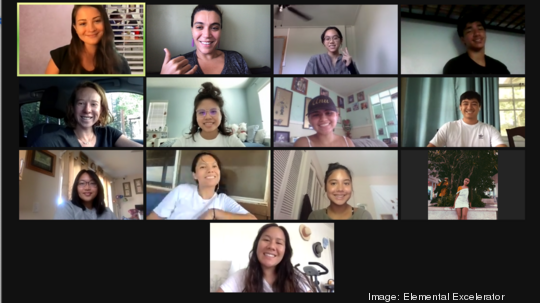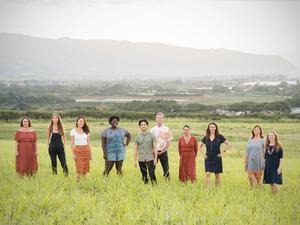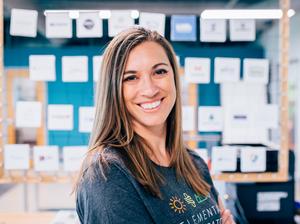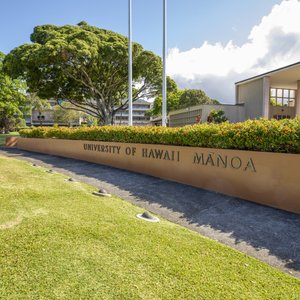
Startup incubator Elemental Excelerator held a summer training course for 10 Hawaii high school students it hopes will lead to further careers and interest in the sectors of climate and technology.
The eight-week program, Root for Innovation, was put on with nonprofit Teach for America and was capped with a virtual event on Aug. 24.
Elemental, which has invested in more than 100 growth-stage companies since 2009, has a stated goal of inspiring 10,000 climate jobs locally, nationally and internationally over the next five years.
Programs like Root for Innovation — Elemental's other such initiatives include a paid internship program for college students at climate tech companies, and the program Empowering Diversity in Clean Tech — are meant to spur interest at an impressionable age.
“Achieving our state’s ambitious climate goals is going to take more than innovative technology, it requires bright minds and a highly qualified workforce,” said Tiffany Huynh, Elemental Excelerator director of external affairs, in a statement. “Root for Innovation is just one of our initiatives redesigning the systems at the root of climate change, while uplifting people and communities around the world.”
The 10 students were incoming juniors or seniors at public high schools this fall — Aiea, Campbell, Nanakuli, Waianae, and Waipahu High Schools schools on Oahu, and Konawaena, Kealakehe, and Keaau High Schools on Hawaii Island.
The students were paired up with five teachers, worked in a virtual setting for up to 15 hours per week, and attended up to two hours per week of professional development.
"We’re hoping to provide students with the skills necessary to redesign the systems at the root of climate change," Berit DeGrandpre, a fellow with the program through Teach for America, told Pacific Business News in an email. "Through these real world experiences at various local companies, we are equipping the next generation with the perspectives and experiences necessary to design a better climate future."
DeGrandpre gave the example of working with two students on her team to design a project that would simulate potential challenges that other students would encounter while working on systems-change-based projects. Negotiation and collaboration skills were important, she said.
"The crux of the project is to give students experience in combining their knowledge and research with the application and skills they will continue to use for years beyond my classroom," DeGrandpre said.
The students received a $1,500 grant upon completion of the two-month program, which was co-sponsored by the Harold K.L. Castle Foundation.
The pronouns for Berit DeGrandpre in the ninth paragraph were fixed.








